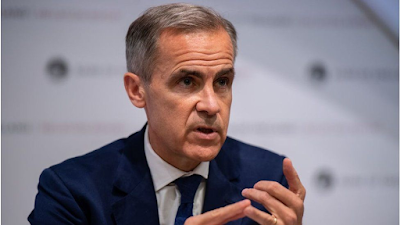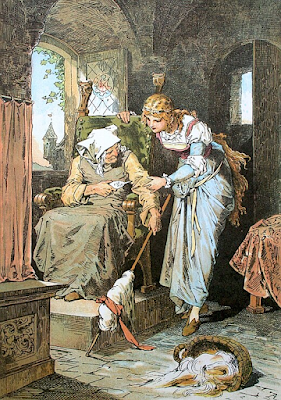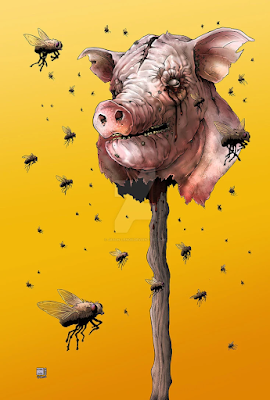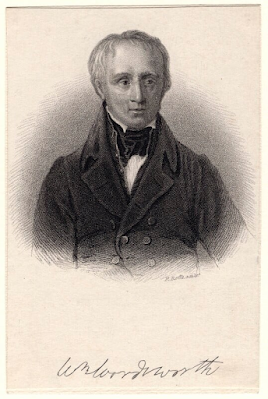Stephen Roney's Blog, page 18
February 26, 2025
Liberal Majority Incoming?

The latest Canadian polls show the Liberals leading, and perhaps on the road to a majority government. A spectacular turnaround over just a couple of months, reversing a historic Tory lead of 20 points.
I for one, did not see this coming. I did not think replacing Justin Trudeau would do much for the Liberals.
But that was before Trump’s tariffs. This is a dramatic “rally round the flag” effect.
It is also due to a collapse of the NDP vote, and to some extent the Bloc vote, not the Conservative vote. It is the NDPers who are rallying to the Liberals.
As with the Kamala mirage last summer in the US, I don’t think this Liberal surge will last. It is based on hype of Mark Carney as the man on a white horse, to voters who do not yet know him.
His popularity is bound to deflate. The party brains have oversold him. Bad command of the narrative.
I have heard it said that, in court, the side that wins is the side that tells a better story.
This is unnerving for anyone hoping for justice. But it is human nature. Most people live entirely in delusions.
And the same principle holds with the media and the news cycle. Reporters want to spin the best story; drama sells papers or clicks. The public will usually accept this and act accordingly.
The most exciting story for now is Carney and Carney’s rise— because the Conservative lead had been so large. But as soon as Carney is well-established, the obviously more interesting story will be Carney’s fall. Fads are like this—nobody can stand pink flamingos, because everybody bought them, and now they feel foolish.
We have seen this totter and possible fall already in an exaggerated reaction to his getting one word wrong in the French debate Monday evening. He said “avec” instead of “dans”! “Carney disappoints!” “Carney cannot speak French!” “He is sure to lose to Blanchet and Poilievre in Quebec!”
We should expect more of this. Carney has a target on his back that looks like the CBC logo.
Add to this that Poilievre is a historically good campaigner. Carney, having spent his career as a bureaucrat, is bland and charisma-challenged. History tells us campaigns matter.
I’d put money down on Poilievre still.
'Od's Blog: Catholic comments on the passing parade.
February 25, 2025
Living in Interesting Times
 Fascist headquarters in Rome: Hope and Change
Fascist headquarters in Rome: Hope and ChangeHow you would have reacted had you been a German in the 1930s? As Hitler rose to power? Would you have been one of the good guys? Even at personal risk?
No need to wonder. We are in a comparable time. Have you even noticed? Will you be proud of your role when, one day, your grandchildren ask?
We have a much larger Holocaust, of the unborn. Seventy million a year and counting.
We have the moral relativism that backstopped the Nazis. As with the Nazis, we have decided that morality is purely cultural and subject to choice. All we think about now is power and the triumph of the will. If I say I’m a woman, I am a woman. You must submit.
We have learned to see one another as ethnicities, rather than fellow humans. As “whites,” or “indigenous,” or “people of colour,” or even as the “gay community.” We have embraced the concept of corporate ethnic guilt, of blood libel. Moreover, if morality is purely a matter of cultural convention, all other ethnicities are immoral.
We have established the same close collusion between government and large corporations that defined Nazism as an economic system. Big businesses are increasingly protected from competition by regulation, their profits guaranteed. In return, they enforce government policies. They have become, in effect, an arm of government.
We have seen totalitarian measures and the suspension of liberties: in the Covid and vaccine crisis; in the draconian response to the trucker protest in Canada; in the crackdown on “hate speech” and “misinformation” online. Governments keep pushing this envelope.
We have seen the police and courts subverted to political ends, as enabled the rise of Hitler in the Weimar Republic. We see eager prosecution and severe penalties for those on one side of the political aisle, while overlooking or barely punishing offenses on the other side.
And we have seen the Reichstag fire, in the reaction to the January 6 riot. Trudeau tried it in Canada as well, claiming the Freedom Convoy was subversive and the product of “foreign influence.”
We have also seen the antisemitism, expanding rapidly, increasing in intensity, since October 7th. Now it is even okay again to kill Jews. Hamas did, and everyone on the left supports Hamas. The Jews are always the canaries in the mine. They are the first targets when morality breaks down.
All that is yet missing is the Fuhrer principle, the impulse to hand dictatorial power to a supposed “genius,” bypassing conventions and established systems.
Those on the left are actually accusing Trump and Musk of this. They are calling them Fascists or Nazis.
Musk’s concentration of powers of all kinds has to be worrying, on Lord Acton’s principle that all power corrupts. And Trump is not good on keeping to social conventions.
But there is a critical element of Nazi leadership that they lack. The Fascist dictator is a narcissist, not a real genius. He only plays one in his own mind, and seeks to impose that illusion on others. This is why he seeks power. You expect him therefore to emerge from nowhere, without significant prior accomplishments. Like AOC, Bernie Sanders, Jacinta Ardern, or Justin Trudeau. Like Muammar Ghaddafi, or Stalin, or Saddam, or Putin.
Trump and Musk are, instead, actual known geniuses. They had achieved distinction before entering politics.
It takes strong leaders, after all, to combat Nazism: a Churchill, a DeGaulle, a Tito.
And so the course for good men is clear.
What will you tell your grandchildren? Assuming they have not been aborted?
'Od's Blog: Catholic comments on the passing parade.
February 24, 2025
Stop the Carney-val
 Mark Carney
Mark CarneyThe polls in Canada are suddenly tightening. This is not because Conservative support has waned; it has held pretty steady. The big factor is a collapse of the NDP vote, and all of it going to the Liberals.
This is not strategic voting to keep the Conservatives out of power. That was as much of an issue two months ago.
I think it is because, now that Trudeau is gone, it is the NDP the voters want to punish for Trudeau.
The NDP supported him voluntarily until the very end.
They do not blame the Liberals, at least yet, because Trudeau made that party so much about him. Now that he is gone, the voters see it as a new party under Carney. This is especially true because Trudeau’s own caucus revolted against him, and his chief lieutenant in cabinet. The general public can see them as his hostages, and sympathize.
I do not think the current Liberal support will hold up for long. To my eye, Carney has “beta” written all over him. He is a career bureaucrat. One is rarely challenged in any way in the government bureaucracy. It’s about blandness and staying inconspicuous and unimpressive. He is unlikely to blossom outside that hothouse. He is unlikely to be talented.
'Od's Blog: Catholic comments on the passing parade.
February 23, 2025
Robbing Peter to Pay Paul Reparations
 Sunny Hostin: Black Like Me?
Sunny Hostin: Black Like Me?Sunny Hostin, who has loudly called for reparations for slavery, discovered on air that her ancestors were Spanish slaveowners.
So were those of Kamala Harris in Jamaica.
This illustrates the illogic of reparations. The likelihood is that most “African-Americans” are ethnically mixed, and descended from slaveowners as well as from slaves. It is not likely, after all, given human nature, that slaveowners back then denied themselves sex with female slaves.
By contrast, few living “white” Americans will have descended from slaveowners. Most probably trace their ancestry through Ellis Island in more recent years. Even most who don’t will have ancestors who lived in the non-slave North, with four times the population at the time. Their ancestors fought to end slavery. And even those whose ancestors came to the US South, will probably bear no blood guilt. Only 1.4 percent of the white American population owned slaves.
All those Scots-Irish rednecks and hillbillies, the stereotypical white Southerner? Their own ancestors were probably slaves, at least temporary slaves, brought over, often against their will, as indentured servants. That was the common fate for Irish, Scottish, or Acadians (Cajuns).
So “African-Americans” are more likely to be descended from slaveholders than “white” Americans.
Who should pay reparations to whom?
The concept is nonsensical, obviously unjust, and patently ahistorical.
'Od's Blog: Catholic comments on the passing parade.
February 22, 2025
The Empire Strikes Back: Dhalla Disqualified

Ruby Dhalla has been disqualified from the Liberal leadership race. We are not being shown the details, but this looks illegitimate. Only $22k is questioned; a trifling amount in the scheme of things. According to Dhalla, this is just a case of six couples who shared credit cards, so that both husband and wife made contributions—legitimately. According to the party brass, there is something about a foreign national being involved. It might be hard for a campaign to screen for such things.
It smells bad to me that the party declared ten “very serious” breaches of campaign rules. That sounds like the lady protesting too much, without details.
It is also suspicious that this disqualification came three days before the scheduled leadership debate. It looks like the backroom feared having Mark Carney face Dhalla before the cameras.
She was not likely to overtake Carney, but she was likely to tarnish his image, and embarrass him and the party establishment with her level of support.
It seems obvious that Carney has been chosen by the invisible power brokers, and the public vote is just for show.
Indeed, Carney must be much weaker than we have so far seen, for the party to take this step. It looks like a public relations disaster. As Dhalla has been quick to point out, they are excluding a minority woman. Worse, it is the second candidate of South Asian background that they have disqualified. And this after scandals involving other minority women being supposedly mistreated: Jody Wilson Raybould, Celina Caesar-Chavannes. And the party is risking alienating and infuriating Dhalla supporters; she is charismatic and has been getting a lot of interest. Hearts will be broken.
They must have been desperate to take this risk. They must have felt the public relations disaster would be worse were Dhalla allowed to debate Carney, and her support were revealed. Even if the Dhalla campaign had genuinely been cheating at this level, it would have been wiser otherwise to overlook it.
Should we be surprised or alarmed? The Conservative race that selected Erin O’Toole was also a sham, intended ironically to coronate Peter MacKay, with O’Toole running as controlled “True Blue” opposition. Jim Karahalios was disqualified, despite showing much early support. MacKay was given privileged access to party information. A series of strong candidates all dropped out within a week or two of one another: Pierre Poilievre, Jean Charest, Rhona Ambrose. The word was out and the fix was in.
It went awry when O’Toole ended up winning; but not too far awry. He was a good soldier, and implemented the establishment platform, in defiance of his own voting base.
The last three Democratic Party presidential races were also obviously manipulated, to force the nominations of Hillary Clinton, Joe Biden, and Kamala Harris respectively. With deals cut, caucus counts cooked, sudden withdrawals, and Bernie Sanders being in the end obedient controlled opposition.
This is all undemocratic; but nothing new. Candidates always used to be chosen primarily in the backrooms, with a few primaries in the US system, and nobody really thought there should be a general vote. In the Canadian parliamentary system, party leaders were chosen by vote of the caucus in the House, not the general party membership. Democracy came later. If you did not like the candidate offered, you voted for the other party.
The problem comes, of course, if there are only two viable parties, and both parties are controlled by the same small cabal. As seems generally to be the case.
In the US, the idea of opening it all up to a general vote came mostly after the campaign of 1968, when Humphrey was chosen by the Democrats without running in any primaries. There was violence in the streets, and of course the Democrats lost the subsequent election. So the Democrats overhauled and democratized their process, and other parties in other countries have followed suit.
The party establishments have been challenged often by insurgent candidates since. This tends to mess things up from the point of view of the career politicians. They have a brand to protect. In Dhalla’s case, she did not speak French; this could hurt their historic Quebec base. With her more centrist views, she might attract many new members to the party who would, in the end, not vote Liberal anyway. Conversely, they fear a radical candidate like Sanders, or McGovern in 1972, could attract majority support within the party, but alienate the majority of voters in a general election.
So of course the politicos have rigged the process.
Trump slipped through the net. In Britain, Jeremy Corbin slipped through the net. Liz Truss slipped through the net, but they responded quickly.
And candidates really can cheat, and then the party must have recourse and referees. Patrick Brown took the Ontario Conservative leadership under suspicious circumstances, without real popular support, and looked as though he has using the same tactics in the 2022 federal leadership race. There has been foreign interference in nomination meetings.
I cannot therefore get too upset over Ruby Dhalla being disqualified. Perhaps it would be best just to keep it honest by having the caucus choose the leader, as originally envisioned. Or, in the US, having each state send unpledged delegates to brokered conventions. All systems are imperfect; politics is always about making the best of it.
'Od's Blog: Catholic comments on the passing parade.
February 21, 2025
A Book List

The first step to rescue our civilization is to fix the education system. And, as Lord of the Flies suggests, the essence of civilization is literature. After or along with the basic skills, reading, writing, and arithmetic, our schools need to teach the classics. This is the furniture of the mind.
And a sure sign of the decline of our civilization is that the canon is not taught any more, often suppressed.
Here is my own essential reading list for saving civilization. Nothing just for entertainment, nothing that is just excellent writing, nothing extra, nothing unnecessarily verbose. These are the books that convey the great ideas, that form a healthy world view and summarize the civilizational discourse. Listed roughly by appropriate age, young to old.
Fables (Aesop)
Cinderella (Perrault)
Snow White (Grimm)
Sleeping Beauty (Perrault)
Rapunzel (Grimm)
The Princess and the Pea (Andersen)
The Emperor’s New Clothes (Andersen)
The Ugly Duckling (Andersen)
Alice’s Adventures in Wonderland (Carroll)
Through the Looking Glass (Carroll)
The Odyssey (Homer; in modern translation)
Genesis
Exodus
The Gospel according to Matthew
The Gospel according to Luke
The Nicene Creed
Anne of Green Gables (for Canadian students); Little House on the Prairie (for the USA)
“In the Country of the Blind” (H.G. Wells)
The Declaration of Independence
Animal Farm (Orwell)
Metamorphosis (Kafka)
Lord of the Flies (Golding)
1984 (Orwell)
Heart of Darkness (Conrad)
MacBeth (Shakespeare)
King Lear (Shakespeare)
The Tempest (Shakespeare)
Crime and Punishment (Dostoevsky)
Meditations (Descartes)
Plato’s Cave
At least, this is the advice of an old guy who has read a lot. Consider this list if you are homeschooling.
'Od's Blog: Catholic comments on the passing parade.
February 20, 2025
Lead Us Not into Temptation

I hear Pope Francis has changed the words to the Lord’s Prayer in the Italian mass. “Lead us not into temptation” is now, in English translation, “do not abandon us to temptation.”
Francis has spoken of this before. I recall him saying years ago that “lead us not into temptation” is a bad translation. God, after all, would never lead us into temptation.
But it is not a bad translation. The words in the original coine Greek, and in the Latin of the Vulgate, do translate to English as “lead us not,” and cannot be made to mean “do not abandon us.”
And this wording is given us by Jesus himself. Francis is presuming to correct Jesus. If that is permissible, what is forbidden? Is self-will and our own judgement sovereign in the universe?
I also think Francis is theologically wrong. Although it is a mystery, some of us clearly are led into temptation, in a way others are not. This has to be God’s will, since God is all-powerful. God tempts us.
He tempted Adam and Eve in the Garden of Eden. He need not have created that particular tree, of forbidden fruits. He need not have given them free will. He need not have allowed the serpent. It was a setup.
Some of us are patently tempted to have homosexual sex; some are not. Some are tempted by alcohol, or gambling; others are not. Say this is from the Devil, and not God; nevertheless, the Book of Job tells us, God gives permission. If he does not tempt us himself, he leads us into temptation. As with Job, he is testing us.
When I was a kid in Catholic school, I understood the prayer well enough. I feared martyrdom, the temptation to renounce the faith in the face of torture and death. Some are put to that test. I did not want that temptation.
And that, of course, is the temptation Jesus himself faced.
Please make it easy for me if you can, Lord. Take this cup from my lips, if it is acceptable to your will.
And consider this. If the meaning is “do not abandon us to temptation,” this asserts that, at the moment of temptation, God abandons us.
This thought is nightmarish. And it implies that, if tempted, one cannot, need not, resist.
'Od's Blog: Catholic comments on the passing parade.
February 19, 2025
Lord of the Flies

Back when I was going through high school, Lord of the Flies was a staple of the curriculum. It seems it still is, at least where it has not been replaced by the latest indigenous author. But I think the book is widely misunderstood.
It is commonly contrasted with Catcher in the Rye. The premise is that Catcher sees mankind as intrinsically good, but corrupted by adult society; the view of Rousseau and Marxism. Lord of the Flies sees man as intrinsically evil, but civilized by adult society. Supposedly the traditional “conservative” view.
One can see why educational authorities would therefore like the book, and this interpretation of it. It validates their authority. Even if they are Marxists, they are going to see themselves as the “vanguard of the proletariat.”
Yet neither view is coherent. If man is intrinsically good, how could they become evil when in groups? Where does evil get in? How can individuals not be greedy, yet corporations and governments are?
Conversely, if man is intrinsically evil, how can people become good simply by joining in groups? Or by getting older, growing up? And as this obviously makes no sense, how does he ever become good?
Lord of the Flies expressly denies that society or government civilizes. There is a nuclear war going on; that is the context for the book. The strife among the abandoned boys only echoes what is happening in the adult world of governments. Ralph’s parents are divorced. Piggy’s mother is unaccounted for.
The conch, symbol of authority on the island, is also the source of all the troubles. It is almost like the apple in Eden. If disorder and “fun” is deadly, social order in turn, seems inevitably bound in with the quest for power over others. Neither Ralph nor Piggy are immune from this; they both crave superiority and power over others, just as Jack and Roger do. The best organized and disciplined group on the island, the choir, becomes the most troublesome. The boy chosen by adult society for leadership turns out to be the most power-hungry and irresponsible.
And the role of the choir seems also to discount organized religion as a possible source of morality. These are the boys who would have been most thoroughly grounded in the faith.
The one truly good, altruistic character is Simon. Simon is “batty.” Simon sees visions. Simon likes to go off on his own and meditate. Simon can apparently read minds, and has intimations of the future.
Morality and truth must come to us, then, deus ex machina. Which is to say, from revelation, from grace. Some few among us are prophets, in contact with a spirit world. They occasionally come down from the mountaintop, emerge from the wilderness, to deliver important truths from beyond.
They are likely to be ignored or considered mad.
Where do we find such characters in our present world?
We know of the prophets in the Bible; and no doubt the Bible is a civilizational source of guidance and morality.
But also in the works of solitary artists. In books like Lord of the Flies.
This is what civilizes us; this is what brings us what goodness or truth we find in this fallen world. It is literature and culture that dulls the power of the carrion impulses, the Lord of the Flies.
'Od's Blog: Catholic comments on the passing parade.
February 18, 2025
Where Bad Poetry Comes From
 Wordsworth
WordsworthLong ago, in a galaxy far away, I attended a poetry group. Each meeting, we decided on a theme for the next meeting.
This one week, someone suggested “memories.”
And met with immediate objections.
I would not expect that. Poetry itself, after all, is all about memory. Memory is the medium of poetry, as text is for prose, or the human voice for drama. “It takes its origin,” Wordsworth said, “from emotion recollected in tranquility.”
But the immediate objection was that memories were “triggering.” They could cause “trauma.”
Another participant chimed in that he had no memories, and so could not participate. He had, he said, a form of amnesia called “anaphasia.” This was due, he explained, to a terrible childhood.
Another participant said that she could not discuss Dylan’s lyrics as poetry, because her abusive former husband used to play Dylan’s “Don’t Think Twice, It’s Alright,” when threatening to leave her.
This does not add up. The essential concept of psychotherapy has always been that reliving memories of trauma is healing. “Memory” is the essence of the Buddhist practice commonly referred to in English as “mindfulness.” It heals the soul. Poetry is the medicine that heals old wounds.
I took the trouble to look up “anaphasia,” and find there is no such form of amnesia. I find the term online only in “The Dictionary of Obscure Sorrows,” meaning “the fear that your society is breaking apart into factions that have nothing left in common with each other.” He might have misspoken, and meant aphasia, the nearest medical term. But this is “a comprehension and communication (reading, speaking, or writing) disorder resulting from damage or injury to the specific area in the brain.” Nothing to do with memory.
And the Dylan story doesn’t make too much sense either. An abusive partner is not someone threatening to leave. An abusive partner wants control of the other, wants to nail the door shut, to ensure they do not leave. If an abusive partner leaves, the victim should rejoice—especially in memory.
Nor is there anything abusive in the tone of the song: “I ain’t saying you treated me unkind. You could have done better, but I don’t mind.” A rather gentle way to say goodbye to a lover, on the whole.
The next oddment is that anyone afraid of their own memories would take to writing poetry as a hobby in the first place. Poetry is intrinsically involved with memory, as Wordsworth says. And in the case of these poets, their own poems are most often talking about their personal past—memories.
How does this make sense?
I imagine that recalling memories, although cathartic and healing, may be scary in prospect.
But methinks these reactions are beyond the reasonable. Methinks they do protest too much.
Who is most likely to be afraid of their memories?
Not be the abused, but the abuser. In the typical dysfunctional family, everyone else but the abuser is proverbially “walking on eggshells,” avoiding any mention of “the elephant in the room.” Memory is dangerous when one has a bad conscience.
That seems just what we see here. Obviously, these poets are not afraid of what memories they might stir in their poems. They are in full control of that. They are afraid of what others might say.
They are in desperate need to control their memories, to ensure that the “narrative” does not drift to something they are actually writing to repress. So they write poems as a fabricated narrative of their past.
They are fleeing a guilty conscience.
Good poetry is written to reveal truth, especially hidden truth. Bad poetry is written to conceal it.
'Od's Blog: Catholic comments on the passing parade.
February 17, 2025
What Is Success?

A friend in Japan is depressed because he never became a success.
What is success? I remember asking my Chinese students long ago, and none came up with what I considered a good answer.
Making more money than those around you? That hardly seems worth a life. As Steve Jobs put it, “I’m not interested in just dying the richest man in the cemetery.”
Worse than that, studies show that having more money than those whose company you enjoy leads to unhappiness. And this makes obvious sense: they may envy you. Conversely, they may only be flattering you in hopes of largesse. You can never know, and can never feel secure in their company.
Becoming famous? Anyone famous tells you that’s a nightmare. You have no privacy, and other people stop seeing you as a human being. You can’t make friends. You can’t even take a stroll to the corner store.
Having lots of sex? That’s emotionally deadening.
This was the Gospel reading yesterday:
‘And he lifted up his eyes on his disciples, and said:
“Blessed are you who are poor, for yours is the kingdom of God.
“Blessed are you who are hungry now, for you shall be satisfied.
“Blessed are you who weep now, for you shall laugh.
“Blessed are you when people hate you and when they exclude you and revile you and spurn your name as evil, on account of the Son of Man! Rejoice in that day, and leap for joy, for behold, your reward is great in heaven; for so their fathers did to the prophets.
“But woe to you who are rich, for you have received your consolation.
“Woe to you who are full now, for you shall be hungry.
“Woe to you who laugh now, for you shall mourn and weep.
“Woe to you, when all people speak well of you, for so their fathers did to the false prophets.”’
To be clear, being rich is not a sin. Too many want to jump to that conclusion, out of envy. But it is a misfortunate. It is not something you should seek. It will make it more difficult for you to enter heaven. Like a camel passing through a needle’s eye.
This passage also means that we will be rewarded in heaven not just for good deeds, but also for any and all suffering we experience in this life. And our reward will be exponentially greater than the suffering. God sends us suffering as a special grace; he has an important role for us in heaven.
So a success is someone who is poor, hungry, sad, and generally reviled.
I figure by that measure I’m a great success.
We’re not supposed to just sit around feeling sorry, though. Otherwise, what’s the point of being born? Jesus goes on, in the other version of the Beatitudes, in Matthew:
“You are the light of the world. A city set on a hill cannot be hidden. Nor do people light a lamp and put it under a basket, but on a stand, and it gives light to all in the house. In the same way, let your light shine before others, so that they may see your good works and give glory to your Father who is in heaven.”
So true success, beyond avoiding sin and cultivating virtue, is letting your light shine.
Not just doing good deeds. "Good works" cannot be read here in this way. Jesus goes on immediately to say,
“Be careful not to practice your righteousness in front of others to be seen by them. If you do, you will have no reward from your Father in heaven.”
But bringing light is bringing truth and beauty to those around you. To your wife, to your kids, to your friends, and beyond that to your community and the world, as your talents allow.
And artists know one monumental secret: beauty comes from suffering.
God sends us suffering that we may transform it into beauty and truth. He has chosen us, as he chose the Jews.
'Od's Blog: Catholic comments on the passing parade.



